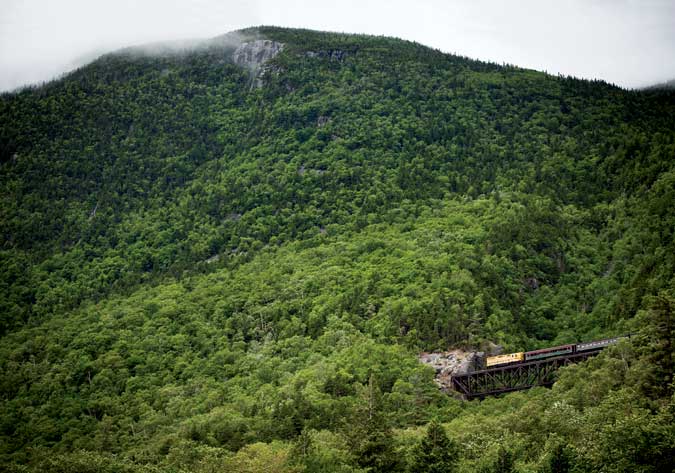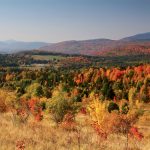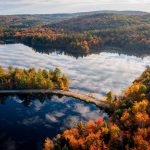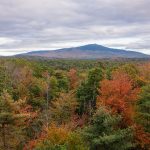The artists came to Mount Washington and its valley first, in the middle of the 19th century, and their keen eye for beauty and detail brought others from the cities with the money and desire to feel what the artists did. Mount Washington, at its 6,288-foot elevation the highest mountain in the Northeast, rises over a valley brimming with waterfalls, rivers, lakes, and thousands of acres of forest. When the early travelers breathed the summer air, they told others about this place, and soon the grandest hotels in the country spread across the valley like great ocean liners perched before the mountain. So much has evolved over the decades in the Mount Washington Valley. Hikers and climbers who thrive on endurance and strength and courage today wait in traffic beside a new kind of explorer: the outlet-mall bargain shopper, whose endeavor demands its own special endurance. But these things haven’t changed: a physical beauty unmatched in the East; a year-round populace stirred by the bracing winds that sweep off the mountains; people who bring a fierce love of their home and the outdoors.
It’s no simple task to capture in photos a place with so many faces. Early last summer, photographer Richard Schultz and his assistant, Shef Reynolds, spent a week shouldering their cameras, following the advice they heard from locals: where to see sunrise; where to find the best local color in a valley where everyone, it seemed, had a story to tell.
“The fun for me is the people I meet,” Schultz says. “It’s the exploration of a new area and the experiences I have. The people were so welcoming to being photographed. I consider this a gift. That they allow this access, not only to photograph them but to be comfortable, so that I can capture what happens naturally.” On the pages that follow, the personality of a distinct part of New England does indeed emerge, between the moments when Schultz’s camera clicked and strangers let him in to see.








